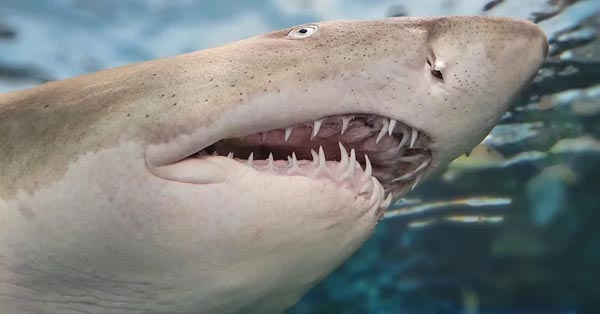Why Sharks Don’t Get Cavities
By Megan Garber, The Atlantic
Should sharks be our role models for oral hygiene? Learn about the two species with "toothpaste-teeth"! The Oral Surgery DC
Sharks live lives that are, to human sensibilities, mostly unenviable. The creatures are constantly moving. They are hunted by predators far higher than they are on the food chain. They are often made to dine on manmade trash. They are totally oblivious to the subtler plot points of Orange Is the New Black.
But sharks, as a group, do have one evolutionary leg (fin?) up on us humans - one that has nothing to do with the terrifying sharpness of their enormous teeth and everything to do with the evolutionary resilience of those teeth. Sharks, it turns out, can't get cavities.
In part, that puts sharks in company with most non-human animals. While creatures who don't have access to Colgate have dental problems just like we do - among them tartar buildup that can cause gum disease - cavities are a largely human affliction, the result (for the most part) of our affinity for sugar.
What makes sharks unique, however, is that their teeth seem to be coated in fluoride. Yes: coated in fluoride. According to research published last year in the Journal of Structural Biology, at least two species of sharks, makos and tiger sharks, feature teeth whose outer coatings "contained one hundred percent fluoride." Which is a nice cuspid coup. It'd be, for us, essentially like walking around with a perma-coating of toothpaste on our teeth.
While the Structural Biology research focused only on the two species, the makos and tiger sharks were chosen precisely because they feed in such different ways: makos rip the flesh off their prey, messily, while tiger sharks use their teeth to neatly slice through their meals. Since both species feature toothpaste-teeth, there's reason to believe that those teeth are a feature enjoyed by other shark species, as well. And the choppers don't just protect sharks against tooth decay: since teeth coated with fluoroapatites are less water-soluble than hydroxyapatites- the stuff that coats most mammals' teeth, including our own - sharks' teeth are also particularly suited to their underwater environment.
So take a moment to appreciate the elegantly Darwinian design of shark teeth. Then push your thoughts of those teeth aside to where they belong: your nightmares.
Article from: http://theatln.tc/2tGwhzL






4.9 Stars
based on 134 reviews
5 Stars
based on 11 reviews
5 Stars
based on 11 ratings